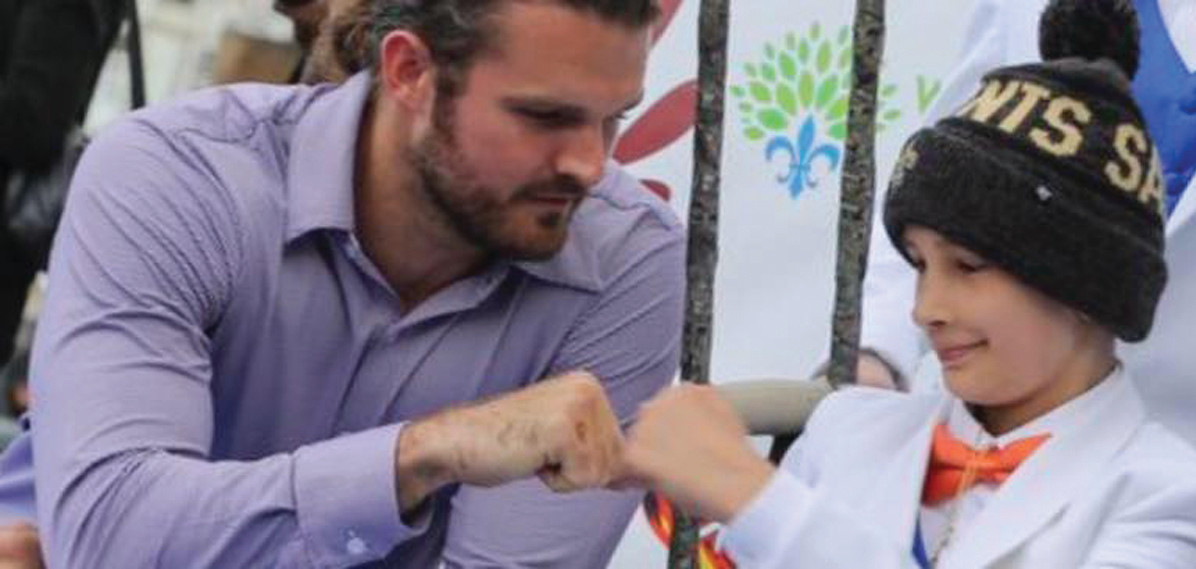Mind + Body: December 2018
Exercising Better Hearing: Brain training exercises can reduce symptoms of tinnitus.
 According to the Centers for Disease Control, nearly 15 percent of Americans (about 50 million people) have experienced tinnitus, a condition that manifests as ringing in the ears. In addition, roughly 20 million Americans struggle with burdensome chronic tinnitus; and two million Americans have extreme and debilitating cases. The global number has been estimated at about 360 million people. In 99 percent of cases, people with tinnitus hear a persistent or intermittent sound (ringing, tones, buzzing, whistling, clicking, etc.) that cannot be heard by others, nor objectively measured.
According to the Centers for Disease Control, nearly 15 percent of Americans (about 50 million people) have experienced tinnitus, a condition that manifests as ringing in the ears. In addition, roughly 20 million Americans struggle with burdensome chronic tinnitus; and two million Americans have extreme and debilitating cases. The global number has been estimated at about 360 million people. In 99 percent of cases, people with tinnitus hear a persistent or intermittent sound (ringing, tones, buzzing, whistling, clicking, etc.) that cannot be heard by others, nor objectively measured.
A recent study conducted at Washington University in St. Louis, and published in JAMA Otolaryngology, that certain types of brain training exercises can reduce tinnitus symptoms. The study divided 40 tinnitus patients who reported having bothersome tinnitus for at least six months into a control group and intervention group, the latter of which received training with BrainHQ exercises for one hour per day, five days per week. After eight weeks, 50 percent of those engaged with online auditory BrainHQ brain training exercises from Posit Science reported improvement in their tinnitus, while only 15 percent of the control group reported improvement.
Intervention and control participants were measured at the beginning and end of the eight-week training period across a number of behavioral and cognitive self-report instruments, through brain scans and with qualitative assessment. Researchers reported no significant differences between groups on the behavioral and cognitive self-report instruments, but the qualitative assessment indicated that half of the intervention group reported improvements in tinnitus, memory, attention and concentration. In fact, 50 percent of the intervention group reported improvement (with 30 percent reporting they were much or very much improved), as compared to only 15 percent in the control group (all of which was reported as minimal improvement). The researchers found these results to be consistent with the hypothesis that the plasticity-based exercises drive structural changes in the brain associated with better outcomes.
Rising Star: New Orleans ranks high among cities its size for building a strong culture for startup companies.
Startup Genome, a company that helps startups succeed and improves the performance of startup ecosystems globally, recently included New Orleans in its most recent report, How Early Stage Ecosystems are Developing in the United States. The Kauffman Foundation supported the study, which analyzed the startup ecosystems of six U.S. metropolitan areas that are not in the top 40 most populous and that have been fairing less well economically than the country as a whole. In addition to New Orleans, the other cities included were Albuquerque, N.M.; Fresno, Calif.; Hartford, Conn,; Reno, Nev.; and Springfield, Mass.
In each of these cities, efforts are underway to support entrepreneurs, create more startups and generate stronger economic trajectories. Startup Genome established wherein the Ecosystem Lifecycle each city is, how each city compares to other cities and what key priorities might strengthen their ecosystems. As cited in the report, New Orleans showed its focus on building a strong culture with founders receiving, on average, two hours of help per week from other founders. In addition, New Orleans, along with Albuquerque, showed strong local connectedness, even outperforming the global average among all ecosystems. However, the Crescent City was a close second to Albuquerque in “Investor Relationships” and “Relationships with Other Founders.” NOLA ranked highest though in “Frequency of Local Startup Events” and “Expert Relationships.” Areas with room for improvement include “Global Market Reach” and “Global Connectedness” (even though New Orleans had one of the highest Global Connectedness scores among its peers), as well as “National Startup Attraction” and “National Entrepreneur Attraction.” startupgenome.com
A Christmas Wish: New Orleans Saints punter Thomas Morstead teams up with Minnesota Vikings cornerback Marcus Sherels to provide a Best Christmas Ever for deserving families.
Saints punter Thomas Morstead and his foundation, What You Give Will Grow, recently teamed up with Minnesota Vikings cornerback Marcus Sherels to raise funds for families in Minnesota and the Greater New Orleans area. WYGWG supports causes, organizations, small businesses, artists and musicians in the Gulf South Region, while Best Christmas Ever works with community partners to provide support to families who have fallen on hard times through no fault of their own. Families in the city whose team who would go on to win the Saints-Vikings game on Oct. 28, which happened to be the Saints (30-20), received 60 percent of the donations to What You Give Will Grow on behalf of Best Christmas Ever, while families in Minnesota received 40 percent of the funds raised.
“Last year, we all were so inspired by the giving nature of Vikings and Saints fans following our loss up there in the playoffs,” Morstead says. “After learning about Best Christmas Ever, a Minnesota-based non-profit, we really wanted to bring the initiative to New Orleans and give six families a holiday season to remember.”
Last year, more than 700 nominations were received and 100 families received the Best Christmas Ever. One hundred additional families received hand-delivered $250 Target gift cards and 100 families were made eligible to receive a $1,000 grant for completing the Dave Ramsey Financial Peace University Course. bcemovement.org, whatyougivewillgrow.com
